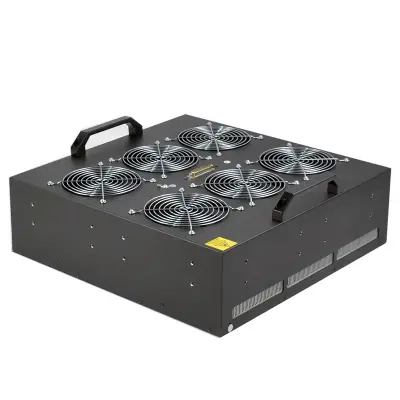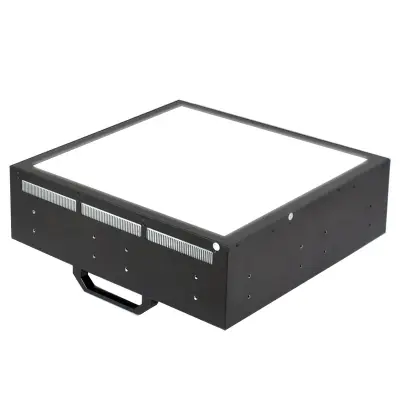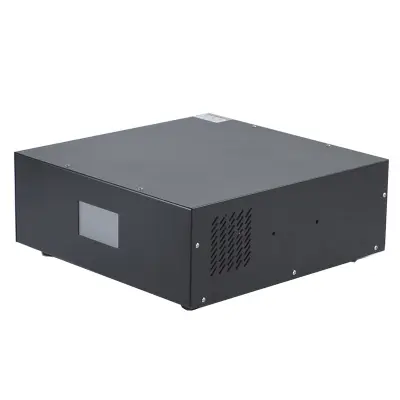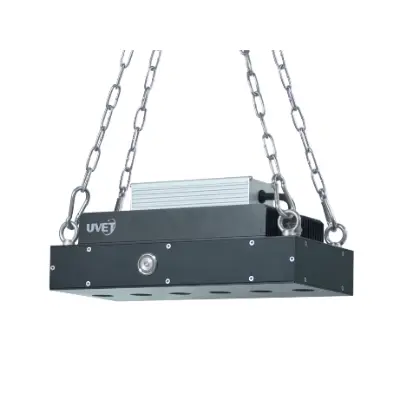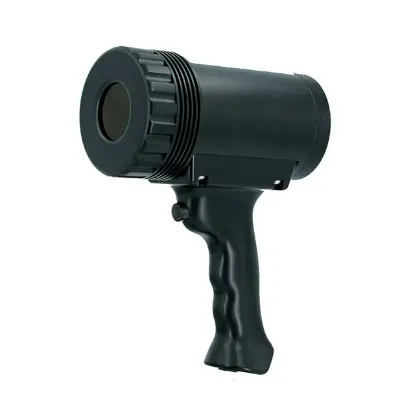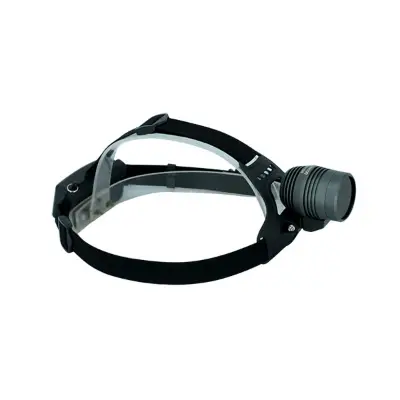UV LED Flood Curing Unit
- Model: UVSS-720L2
- Various Sizes
The UV LED Flood Curing Unit delivers powerful and reliable UV curing across a large 300×300mm irradiation area, making it ideal for processing multiple parts simultaneously. Equipped with an efficient fan-cooling system and supporting optional wavelengths of 365nm, 385nm, 395nm, and 405nm, this unit is built for consistent performance without overheating. Whether used as a standalone solution or integrated into automated production lines, the UV LED flood curing unit offers the flexibility and effectiveness needed to keep your operations running smoothly and efficiently.
Specifications
| Part No. UVSS-720L2 | Wavelength 365nm, Intensity 1500mW/cm2 |
| Part No. UVSE-720L2 | Wavelength 385nm, Intensity 1800mW/cm2 |
| Part No. UVSN-720L2 | Wavelength 395nm, Intensity 1800mW/cm2 |
| Part No. UVSZ-720L2 | Wavelength 405nm, Intensity 1800mW/cm2 |
| Irradiation Area | 300x300mm |
| Heat Dissipation | Fan cooling |
-
Descriptions

The UV LED flood curing unit is engineered to deliver powerful, even UV exposure across a broad curing area. Designed for high-precision production environments, it features a generous 300mm × 300mm irradiation zone—large enough to handle full-sized components or multiple smaller parts in a single cycle. This makes it an excellent fit for electronics assembly, medical device bonding, optics, and optoelectronics.
The unit supports four selectable wavelengths—365nm, 385nm, 395nm, and 405nm—offering compatibility with a wide variety of adhesives, coatings, and UV-reactive materials. Whether you're working with clear encapsulants or opaque bonding agents, this system offers the flexibility to match your specific material needs.
Equipped with a high-efficiency fan cooling system, it ensures stable performance during extended operation. This built-in thermal control prevents overheating, helping maintain output consistency while extending the unit’s operational life.
Features
- Smooth fan cooling: Keeps the lamp at a safe operating temperature, even during continuous use
- It is simple to use: Requires minimal training for operators to get started quickly
- Versatility in use: Functions either as a standalone unit or within an automated production line
Why Choose the UV LED Flood Curing Unit?
The expansive 300mm × 300mm curing window allows for efficient batch processing, helping reduce cycle times and increase overall throughput. It's especially beneficial for curing large panels, circuit boards, or assemblies that require uniform exposure across a wide surface.
In addition, the selectable wavelength feature allows you to match the UV light to the specific absorption properties of your material. This flexibility enhances curing quality, reduces material waste, and ensures strong bond strength for a variety of applications.
Beyond performance, the UV LED flood curing unit also brings the efficiency and durability of LED technology. It starts instantly—no warm-up time is needed—and powers down just as quickly. Its low energy consumption and reduced heat output contribute to a safer, more efficient workspace, especially in temperature-sensitive manufacturing environments.
Why Is It Different?
- Many fields benefit: Suitable for use in electronics, medical device production, optics, and other precision-based industries
- A big enough space (300mm × 300mm): Supports curing of large components or multiple units simultaneously
- 4 wavelengths available (365nm, 385nm, 395nm, 405nm): Provides flexibility for a variety of adhesives, coatings, and materials
- LED lighting advantages: Instant start/stop, low energy consumption, minimal heat, and long-lasting performance
UV LED flood curing units provide the reliability, speed and flexibility you need. Whether you are expanding your production or upgrading your existing curing process, the system provides efficient, high-performance UV curing solutions for a wide range of industries.
-
FAQs

Q1: What is a UV LED Flood Curing Unit used for?
A: A UV LED Flood Curing Unit is used to cure UV-sensitive adhesives, coatings, and inks across wide surfaces in applications like PCB manufacturing, industrial printing, optical devices, and conformal coating.Q2: What are the advantages of using a UV LED Flood Curing Unit?
A: It provides uniform UV output over large areas, enables faster processing with low heat emission, reduces energy consumption, and offers a long, mercury-free service life.Q3: What wavelengths are supported by the UV LED Flood Curing Unit?
A: Available wavelengths include 365 nm, 385 nm, 395 nm, and 405 nm, which can be selected based on the specific UV-curable material and curing depth needed.Q4: Can the UV LED Flood Curing Unit be integrated into automated systems?
A: Yes, it supports integration with conveyors, robotic arms, and PLC-controlled lines for automated, high-throughput production environments.Q5: What maintenance is required for the UV LED Flood Curing Unit?
A: Maintenance includes routine cleaning of optical components, monitoring of cooling systems, and periodic checks of LED output to ensure consistent curing performance.
